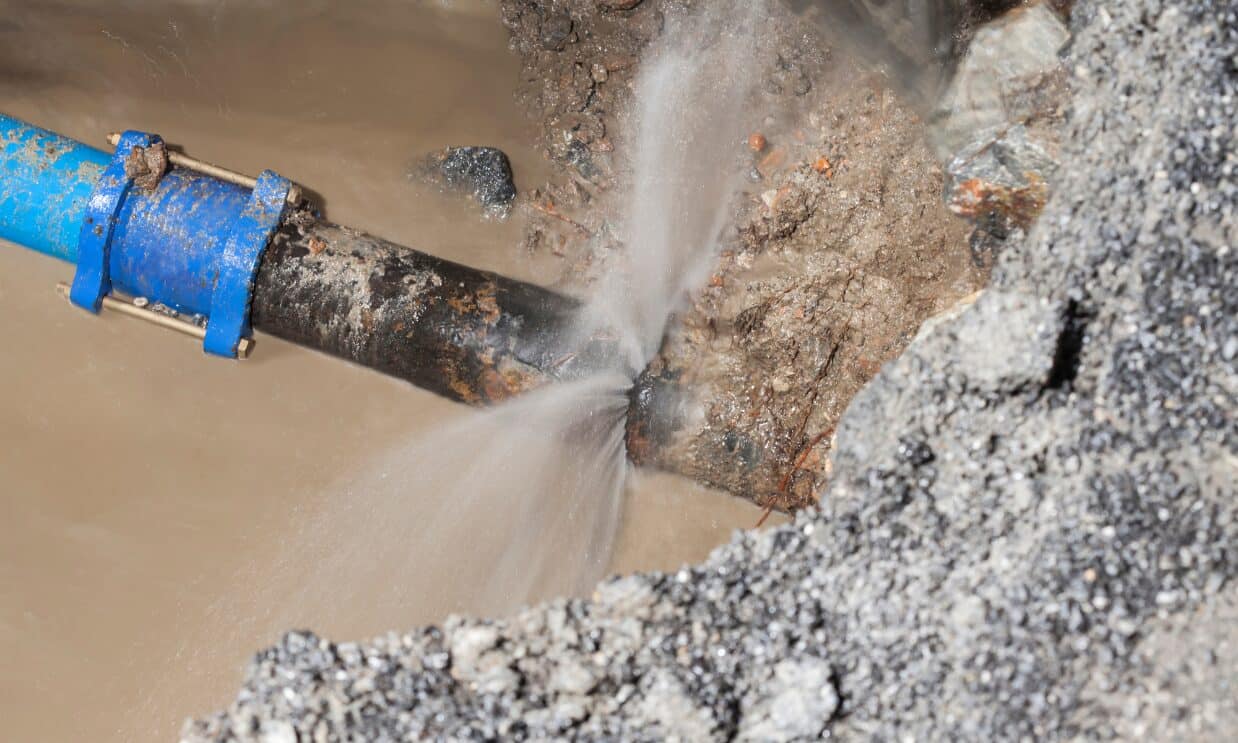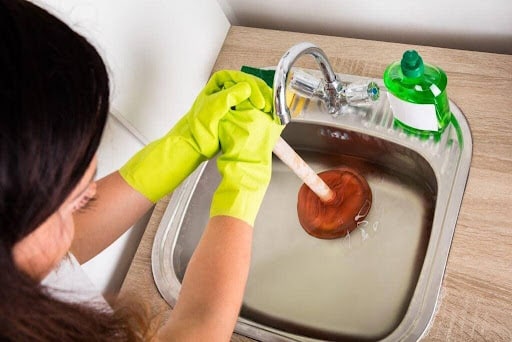Decades ago, cast iron pipes were the backbone of the city’s plumbing, chosen for their durability and resilience; these pipes were used in a multitude of commercial and residential properties that can still be found today. With the passage of time, these once sturdy pipes now often require the attention of a plumber in Fort Lauderdale.
To protect your building and wallet from the adverse side effects of cast iron leaks and pipe damage, it’s vital to understand when to undertake cast iron pipe repair. To maintain your plumbing system effectively and efficiently, use these tips to identify when your cast iron pipes are in need of repair.
Table of Contents
Signs Indicating the Need for Cast Iron Pipe Repair
Detecting early signs that your cast iron pipes require attention is critical. Here are some more detailed indicators to watch for:
- Frequent Clogs: Repeated instances of clogs across multiple fixtures may indicate a systemic issue with your cast iron pipes. This symptom often suggests significant internal corrosion or obstruction, limiting the flow of wastewater away from your property.
- Foul Odors: A persistent sewage smell emanating from your drains or fixtures can signal cracks or breaks in your cast iron piping. These openings allow sewer gasses to infiltrate your home, affecting the air quality and posing health risks.
- Changes in Water Pressure: A sudden or gradual decrease in water pressure might be caused by the buildup of rust and debris within your pipes. Such obstructions can restrict water flow, impacting the efficiency of your plumbing system.
- Foundation Cracks or Settlement: Leaking pipes can lead to water accumulation beneath your property, potentially causing foundation issues. Signs of foundation movement include visible cracks in the exterior or interior walls and uneven floors.
Side Effects of Damaged Cast Iron Pipes
The consequences of ignoring these signs can be severe. Here are some potential side effects of damaged cast iron pipes:
Water Damage
One of the most immediate concerns with leaking cast iron pipes is water damage. This can affect flooring, walls, and even the structural integrity of your home, leading to costly repairs.
Mold and Mildew Growth
The moisture from leaks creates an ideal breeding ground for mold and mildew. These fungi can spread quickly, posing health risks to residents, especially those with respiratory issues.
Increased Water Bills
Unnoticed leaks from damaged pipes can result in a significant waste of water, which is often reflected in an unexpected increase in water bills. This not only affects your finances but also wastes valuable resources.
Contaminated Water Supply
Corroded cast iron pipes can compromise your water quality. Rust and other contaminants can leach into the water you use for drinking, cooking, and bathing, posing serious health risks.
How Plumbers Inspect Cast Iron Plumbing Systems
Leading plumbers in Fort Lauderdale use 360-degree plumbing camera inspections to accurately diagnose the condition of your cast iron pipes.
This technology allows for the identification of even the smallest cracks and fissures, guiding the decision between repair and replacement. If cracks are identified, plumbers will recommend cast iron replacement rather than pipe repair.
Whereas if calcium and minerals build-ups are found on the walls of the pipes, plumbers will opt for hydrojetting. Benefits of Hydrojetting Your Pipes
Due to the high mineral concentration of water in South Florida, many plumbers in Fort Lauderdale find that plumbing systems are filled with obstructions and blockages as a result of calcium buildups.
As the hard water runs through the pipe, deposits of minerals accumulate, lining the pipes. Hydrojetting your pipes is a great way to flush and clear the blockages.
The leading plumbing hydrojetting used by skilled plumbing companies in Broward County are designed to carefully yet forcefully wash away stuck on minerals to permit the smooth and seamless flow of water through your pipes, minimizing disruption.
Replacement of Cast Iron Pipes with PVC Plumbing
In more severe cases, replacement with PVC plumbing is recommended. PVC pipes are not only durable and resistant to corrosion but also more efficient in preventing leaks and water contamination.
Professional plumbing companies use leak detection techniques to precisely locate problematic areas, ensuring a seamless transition from old to new piping systems.
This replacement not only solves current issues but also mitigates future problems, ensuring a more reliable and safe plumbing system for your property. By upgrading your plumbing to high-quality and durable PVC pipes, not only will you mitigate future damage, you also significantly increase your property value.
Benefits of PVC Pipe Installation
Transitioning to PVC pipes from old cast iron systems brings with it a number of benefits that enhance the plumbing infrastructure of any property.
PVC pipes stand out for their exceptional longevity and durability, as they are impervious to the rust, corrosion, and degradation common to metal piping. This means they can last for decades without needing replacement, significantly reducing long-term maintenance and repair costs.
Furthermore, PVC pipes are notably cost-effective, not just in terms of the initial purchase price, but also due to their lighter weight, which lowers transportation and installation expenses. The installation process itself is simpler and faster, which translates into reduced labor costs. Another critical advantage of PVC plumbing is its resistance to leaks.
Thanks to the secure joining process, PVC pipes offer a more reliable seal than their cast iron counterparts, mitigating the risk of leaks and water damage. Altogether, these benefits make PVC pipe installation a wise choice for property owners looking to upgrade their plumbing systems for efficiency, reliability, and peace of mind.





